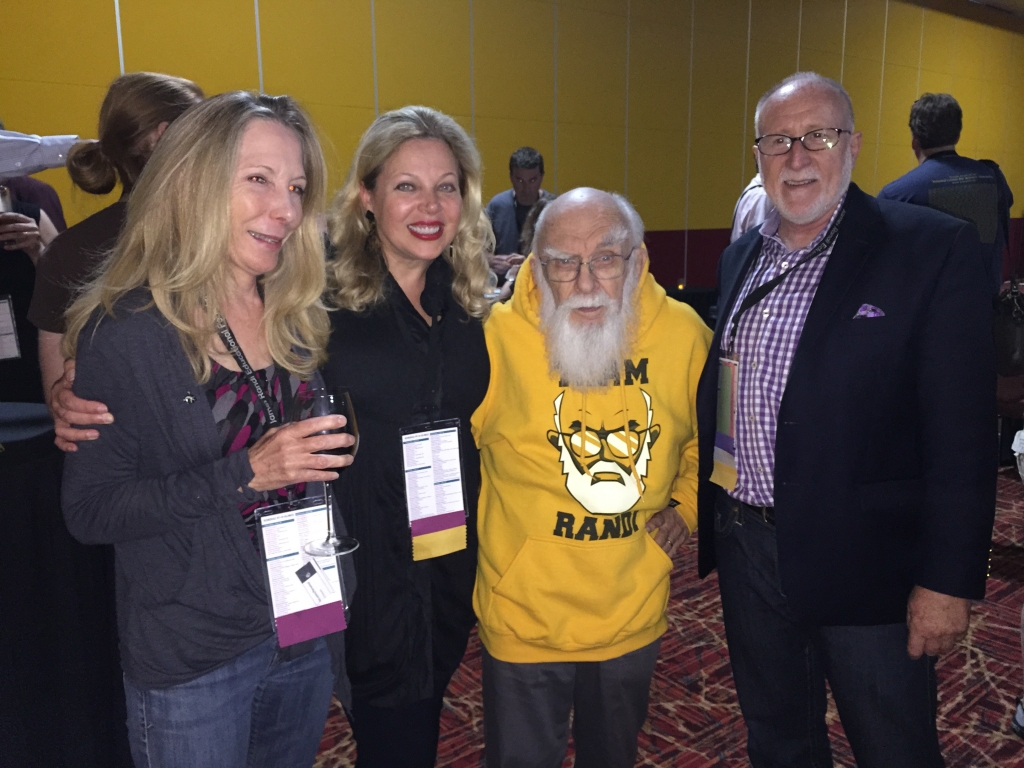The weekly report on US and International policy
by Edwina Rogers
Secular Policy Institute┬áCampaigns To Save The Lives Of The Nigerian Nine Sentenced To Death – Meeting With President Muhammadu Buhari In D.C.
Please join the Secular Policy Institute┬áand other Coalition members┬árepresented in┬áa letter to the Nigerian President, Governor, and Ambassador requesting pardons for nine people– affiliated with the Tijaniyyah Sufi sect– who were recently sentenced to death for blasphemy by a Sharia court. The “blasphemy” in this case was for celebrating the birthday of an Islamic prophet other than Muhammed.┬áNumerous SPI Fellows and Advisors have assisted in writing this letter and in reaching out to top officials in Nigeria.
The top Nigerian intelligence officer informed us that the nine individuals are currently under the protection of the Nigerian federal government.  However, these citizens have lost their reputations and their possessions; their lives may be next.The President of Nigeria is currently in Washington, DC, and has already met with President Obama. I was included in a meeting with President Muhammadu Buhari on Wednesday, July 22, at the Institute of Peace.
The attached letter will be open┬áuntil Friday, July 31,┬áif your organization wishes to┬ábe included, please email me at┬áedwina@secularpolicyinstitute.net. ┬áWe do not need the┬áname of an individual; the group’s name is acceptable.
We will also send a reminder next week to all SPI Coalition Members.  We are requesting a meeting with Ambassador Adefuye to discuss how our organizations can assist in protecting these fellow humans and their right to freedom of religion and expression.

Science Has Left The House (And The Senate) – Secular Policy Institute┬áAt James Randi Foundation The Amaz!ng┬áConference
Secular Policy Institute┬áCEO Edwina Rogers gave an informative speech at The Amaz!ng Meeting┬áconference in Las Vegas. Rogers’ speech addressed the anti-science sentiment that is sweeping the state and federal legislatures, pushing┬áevolution aside in favor of “intelligent design,” and stops critical curricular updates in science courses.┬áEven the US House Science and Technology Committee is calling into question many federal grants for research in the STEM sciences, while legislative bodies throughout the country┬áare making┬áadvances towards anti-science positions such as abstinence-only sex education.┬á From incursions into reproductive rights and marriage equality,┬áto the anti-skeptic denial of climate change, SPI scores the legislative initiatives that┬ároll back our world to┬áa pre-Enlightenment era and are┬ámost deserving of Dishonorable Mentions. ┬áWe will soon have a video of the speech on┬áthe SPI website.
Science Education And Elementary and Secondary Education Reauthorization Act
The United States Senate addressed climate change education last week in the reauthorization of the Elementary Secondary Education Act.
At issue were three proposed amendments to the bill to reauthorize the Elementary and Secondary Education Act of 1965: one against climate education and two in support of climate education.
The denial amendment, SA 2144 from Roger Wicker (R-Mississippi), a notorious climate change denier, would direct the administrators of EPA and NOAA to provide “balanced, objective resources on climate theory.” The description of the materials omits any mention of human influence on climate, and it seems likely that the intention of the amendment is to disseminate materials that omit or obscure the scientific consensus on the causes of recent climate change. ┬áThis amendment was withdrawn as it failed to procure the required 60 votes.
The first helpful amendment, SA 2175 from Ed Markey (D-Massachusetts), is a non-binding resolution. The resolution refers to the scientific evidence for human-induced climate change as “overwhelming and undeniable,” and holds that “instruction in climate science is important for all students and should not be prohibited by any unit of State or local government.” This would put the Senate on record as firmly supporting climate change education. ┬áThis amendment was accepted.
The second supporting amendment, SA 2176, also from Senator Markey, would establish the Climate Change Education Act. This act would establish a grant program aimed in part at developing and improving educational material and teacher training on climate change. This would put the federal government’s money where its mouth is ÔÇö┬áand where, in a time when the effects of human-induced climate change are becoming more visible and more disruptive, it ought to be.
Senator MarkeyÔÇÖs (D-MA) amendment 2176, ÔÇ£to establish a climate change education program,ÔÇØ was rejected┬á
44-53. In connection with this amendment, I was told that Senator Alexander commented that with this ESEA, the idea is to lessen the federal role and increase state autonomy.


